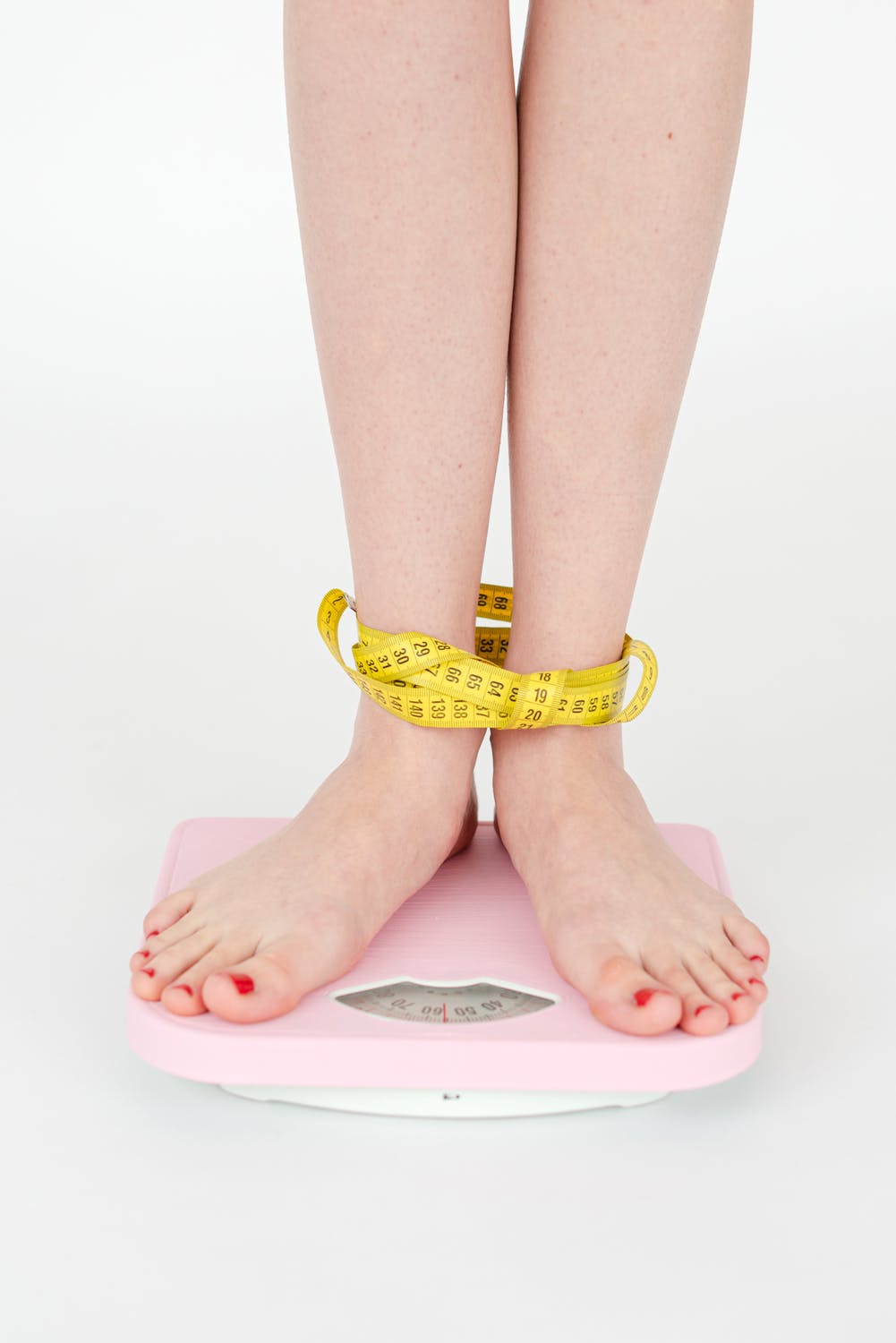Summary: It’s no secret that most of us struggle with our appearance at least to some degree and want better body image. What we may not realize is how much of our struggles come from feeling defined by our appearance. Let’s talk about the research behind what that does to you and how to move past it.
What I’m about to say might not surprise you.
Almost all women struggle with their body image in some way. It’s hard to pin down a number, but some research shows that it might be as high as 97% of women who have at least some level of dissatisfaction with their body.
Body image is a huge challenge for so many of us these days and it’s impacting our mental health and our relationships.
So let’s talk more about what’s going on and what you can do about it.
Love Your Body (Instead of Being Defined by It)
Women, here’s a sad truth that you need to know. Somewhere along the way in life, you got the message from society, and especially the media, that your worth is defined by what you look like.

Your weight. Your hair. Your breast size. Your eyelashes, eyebrows, toenails, fingernails, skin, height, clothes, muscles.
Though it happens for men at some level, being defined by your body is especially pervasive for women.
You are being told, even if it’s subtle and subconsciously, that what you like is the measure of your worth. It’s in the media, it’s on the billboards, it’s the conversations with your friends.
The pressure is on for women and it’s everywhere around us. Literally everywhere.
As you can imagine, this emphasis on appearance can lead to a whole host of problems.
Boost Your Body Confidence By Rooting Out Objectification
Treating a person like an object is called objectification.
Objectification means degrading and devaluing someone and instead of appreciating them for who they are, what you love about them, or what makes them truly special and lovable, you focus instead on what they look like.
It’s as if they owe you their appearance. As if they exist for your visual consumption rather than as someone to love.
Those who feel objectified often feel like their body belongs less to themselves than it does to others.
How wrong is that?!
Your body is yours to feel, experience, taste, touch, smell, and enjoy all the things of this world. And that has nothing to do with what it looks like or how others perceive it.
As women, we often blame men for the objectification that happens to us, and there’s certainly some truth to that. Men ogling women has been around for a long time and things like pornography take that objectification to a whole new level.
It’s demeaning and disrespectful. It doesn’t lead to the respect and love (of self or partner) needed to support a healthy relationship.
But what you may not know, is that women can sometimes be just as prone to objectifying each other as men are to objectifying women.
This usually happens because of self-objectification. Let’s explore how and why that happens, but first, let me explain a little bit about what self-objectification is.
What is Self-Objectification?
When you get so used to feeling objectified by others that you start to buy into some (many, all?) of the idealized versions of what you are “supposed to look like, what typically happens is that you start to objectify yourself.

This is called self-objectification.
When you self-objectify, you try to see yourself as other people see you.
So rather than being present and living fully in your body and experiencing things from the inside, you try to take a step outside and watch yourself experience it. And evaluate how you look while you do it.
Guess how well that works?
It doesn’t.
It disconnects your mind and body because what you are thinking and what you are experiencing are two separate things and it leaves you unable to be present in the moment.
Imagine if this is happening to you all the time. You become a spectator in your own life rather than being able to remain present and enjoy the experiences you are having.
And that’s true whether it’s dancing, eating, having sex, teaching, talking, playing a sport, or anything else you do with your body. This can affect a lot of areas of your life.
The Problem(s) with Self-Objectification
And maybe it won’t surprise you when I tell you that self-objectification is associated with so many other negatives, not just for you but for your relationships too.
Here’s just one example: Sex isn’t likely to be that fulfilling if you are focused on what you look like rather than how your body feels during the experience. If you’re doing that spectating thing where you’re watching yourself rather than experiencing the moment, you’re probably missing out on a lot. So it makes sense that things like sexual satisfaction and sexual functioning are worse when you objectify yourself.
People who self-objectify are also more likely to feel ashamed of their bodies (no matter what they look like), have lower feelings of self-worth, and have more depression, anxiety, and eating disorders.
In short, self-objectification is terribly harmful…but most of us are doing it.
How Do You Boost Your Body Confidence Then?
Just like a number of other things I’ve mentioned on this site, body image is an area in which strengthening your sense of self will help. That’s because having a strong sense of self means that YOU get to decide what’s right for you, not others. You get to define who you are and you don’t allow others to define your worth.
In this case, that means rejecting idealized images of what you think you “should” look like in favor of appreciating what you do look like. But more than that, it’s about appreciating who you are regardless of what you look like.
Just like with everything else related to having a reflected sense of self (letting others define who you are and what you’re worth), the first step is recognizing ways that you are doing this so that you can stop.
- What expectations are you setting about how you think you should look based on what you see around you?
- Do those feel natural and fulfilling to you?
- Are you comfortable in your own skin and willing to really let others see the real you, or are you hiding behind makeup, eyelashes, or your weight and trying to feel like you measure up in those areas so that you will be worthy of acceptance and love?
Let me say this again clearly.
You already are worthy of acceptance and love and that has nothing to do with what you look like.
I love what Drs. Lindsey and Lexie Kite teach about your body:
Your body is an instrument, not an ornament.
And that positive body image isn’t believing your body looks good, it’s knowing your body is good, regardless of how it looks.
Your body is not something for other people to evaluate and appraise, it’s something for you to live in, something you use to experience all the joys of life in (hello warm chocolate chip cookies), and something you care for because you’re worth it.
And that has nothing to do with what it looks like.
Here are two resources that can help you gain more confidence in yourself:



